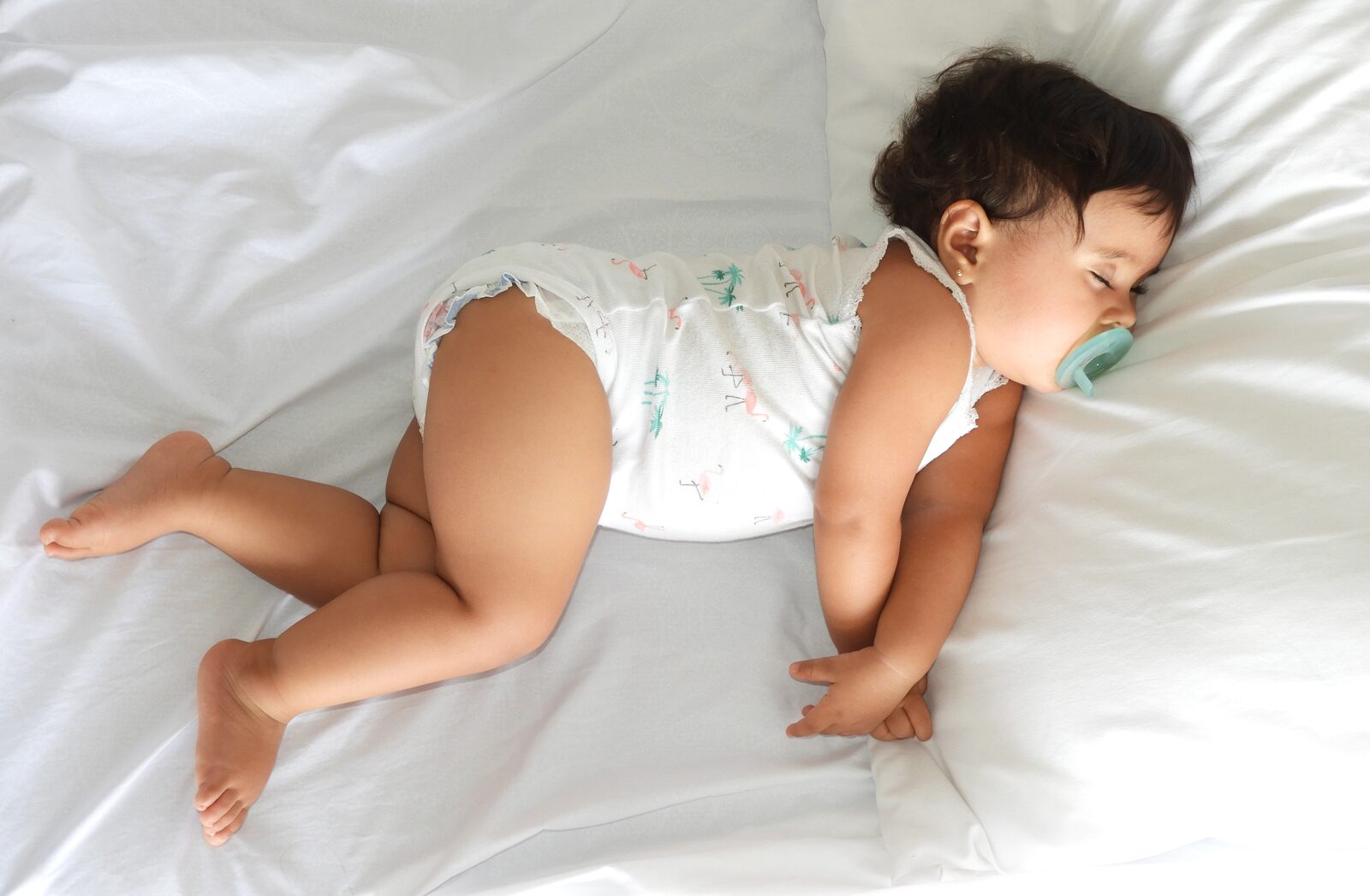Care of the newborn
How are the first days of the baby at home? those who have had children know how challenging the first days of the baby are at home. For new parents, the difficulty increases.
While in the hospital everything seems simple, anxiety appears at home and doubts are taken into account.
In his first days of life, the child has to deal with factors that, until then, he did not know, such as strong light, sounds, temperature variation, humidity.

Since parents need to adapt to a new routine totally directed by the baby, who does not have time for anything and who can not say what he wants, he just cries.
Thinking of helping you in this mission, then we give you some essential tips in the first days of the baby at home:
Routine changes of parents
Be prepared, because if you are a person very attached to your routine, you will probably feel a lot of difficulty these first days.
The baby will wake up at any time and often cry all the time, in different ways, according to the need of the moment. And you'll have to be there, present, and grateful to be able to help that little person so helpless and so dependent on you.
In the first days, finding time to take care of yourself is a luxury and your routine, even your sleep, will depend on your child's schedule. So enjoy any moment of sleep of the baby to rest or go out and fix some slopes of the house.
It is very important in those first days of the baby that the father is present and helps in all the tasks of the house, such as cleaning and preparing meals, so that mom can rest and recover her energies.
Control of visits to the newborn
It is inevitable that in the first weeks the parents will receive some visits from relatives and friends who want to see the child.
To avoid any inconvenient situation, it is important to establish some rules and make everyone respect the rest of mom and baby.
The visits should be quick and, if possible, functional, that is, that the visit can help the couple in some way, preparing the food or taking care of the services of the house, for example.
If the visit wants to hold the child in their lap, ask them to wash their hands, because that contact with the baby can be an important vector of contagious diseases.
The bath of the newborn
One of the biggest difficulties for parents in the first days of their babies' lives is bath time. Many newborns do not feel comfortable at that time and they end up angry and crying a lot, which hinders the process.
Therefore, it is important to make this moment as pleasant as possible for the child and, for this, we must follow some recommendations.
The bath should be given once a day, preferably in the hottest time, between 10 and 12 o'clock, with warm water.
It is important that the bath is given before feeding, so that the child is more willing and full belly, avoiding discomfort.
Close doors and windows to prevent drafts, which can make the baby feel cold.
Leave all the material you are going to use separated so that you do not have to interrupt the bathroom to pick up something that you forgot. Thus, separate the towels that will be used, the soap, the clothes, the diaper, the ointment, the oils and the cotton.
Breastfeeding of the newborn
During the first weeks, the baby does not establish any kind of routine, so he will be hungry irregularly at any time of the day.
In general, the intervals between the blowjobs oscillate between 1 and 3 hours in the first days. Therefore, breastfeed every time the child requests it, even at dawn, otherwise, it is at dawn when the peak production of prolactin occurs and it is very important to breastfeed during this period of the day.
We fully extend this point on breastfeeding in the following article:
It is very common that the nipples hurt at the time of breastfeeding the baby, which is absolutely normal, since the nipple is a sensitive region.
But it is possible to make this moment more pleasant and peaceful for both of you: do not expect the child to be very hungry for you to breastfeed him, because if he is hungry he will suck the milk more strongly, which can bring a lot of discomfort and pain , try to breastfeed every 3 hours maximum.
During breastfeeding, the baby will naturally and involuntarily absorb a good amount of air, so it is important to remember to place the child to burp later.
It should be remembered that, according to the WHO (World Health Organization), until 5 - 6 months of age it is important that the child is fed only breast milk and recommended 8 to 12 blows per day.
Health care and baby development
Take care of the navel hygiene of the baby until it falls completely. This can be done with 70% alcohol consumption applied with the help of a cotton rod immediately after bathing.
In the first months of his life, his son has not yet developed his defense system and, as a result, his body remains fragile and could be affected by contagious diseases. Therefore, in that beginning it is good to avoid contact with sick people or pets.
In terms of development, it is common in these early days the baby lose a little weight and can lose up to 10% of the weight of his birth.
If you are breastfeeding properly and you are constantly following up with the pediatrician, there is nothing to worry about! That loss is natural in those first days of life.
It is important to take your little one to sunbathe early (before 10 o'clock in the morning) or at the end of the afternoon, between 10 and 15 minutes each day. Also, you should not forget to catch up on vaccination.
The BCG vaccine is also used for tuberculosis and the first one for hepatitis B.
Finally, never forget that it is very important to have the support of a pediatrician and a trusted obstetrician so that they can help in all moments of doubt that, do not hesitate, there will be many!
6 worries that every mother has about the health of a newborn
Being a first-time mother or father is not easy. As much as you have prepared for the arrival of the baby, the insecurity is great and taking care of that totally dependent being can seem an immense responsibility.
With each new challenge, parents wonder if they are doing the right thing and small setbacks, normal of this stage.
To clear some of the main doubts that accompany the arrival of a child, we prepare a guide with the most common concerns that every mother has about the health of her newborn.
Groans and crying
One of the main reasons for parents' anxiety in that phase (and for a good time) is crying. Newborns cry a lot and for many reasons: hunger, sleep, cold, heat, or just the need to feel their mother nearby.
Although it is difficult to remain calm at these times, it is important that parents breathe deeply and see it naturally, after all, the only way for the newborn to communicate is through crying.
If the baby is fed, changed and clean, and still crying, he may be suffering from pain or cramping. If the problem persists, it may be necessary to consult the pediatrician - it is the most appropriate professional to clear all doubts of the parents and should be accessible in case of need.
The terror of colic
One of the reasons for newborn crying, colic, usually appear for a few months and is due to the immaturity of the baby's intestinal system. In some cases, the mother's diet also contributes to this problem.
If the baby is agitated, crying and moving his legs, try doing gentle massages on his belly or a warm compress. Bathrooms, soft music and low light also help the baby to calm down. And beware: resist the temptation to try that medicine or the infallible recipe of the neighbor or her best friend.
What's in the diaper?
The amount of baby's bowel movements can scare parents on their first trip, especially if they are breast-feeding. Breast milk is digested quickly and the poop is usually more liquid and colored, that is perfectly normal and indicates that the baby is healthy!
Regurgitation
Right after breastfeeding, it is common for babies to regurgitate a bit, especially when they are placed to burp. The digestive system of the newborn is not yet fully developed and, therefore, the return of a little of the ingested milk is normal.
If the child is growing and getting fat, there is nothing to worry about. If in doubt, seek guidance from the pediatrician, who can assess the baby's general condition and help alleviate parental distress.
The baby's head
The newborns have a soft part on the head composed of a protective membrane called the mollera. In some moments, it is even possible to see the baby's pulse in the head, which indicates that the circulatory system is functioning without problems.
That's because the bones have not yet joined, but that condition disappears over time and should not be a concern for parents.
The future of newborn health
There is no father and mother who does not worry about it: How to guarantee the health of my son during his growth and throughout his life? It is impossible to prevent your child from getting sick, but to schedule regular visits to the pediatrician and to comply with the vaccination schedule to the letter are important attitudes to prevent diseases and offer the best treatments in case of health problems.
Prospective parents can also choose to store stem cells from their child's blood or umbilical cord tissue, which can bring more peace of mind to the future of the baby and the family.
The storage of stem cells represents more treatment alternatives in a time of adversity.
The day to day with the baby can and should be lived in a calm and serene way.
Concerns about their health and development are normal; We should only take into account the advice we have mentioned and do not forget that the pediatrician is the best person to clear all your doubts.
